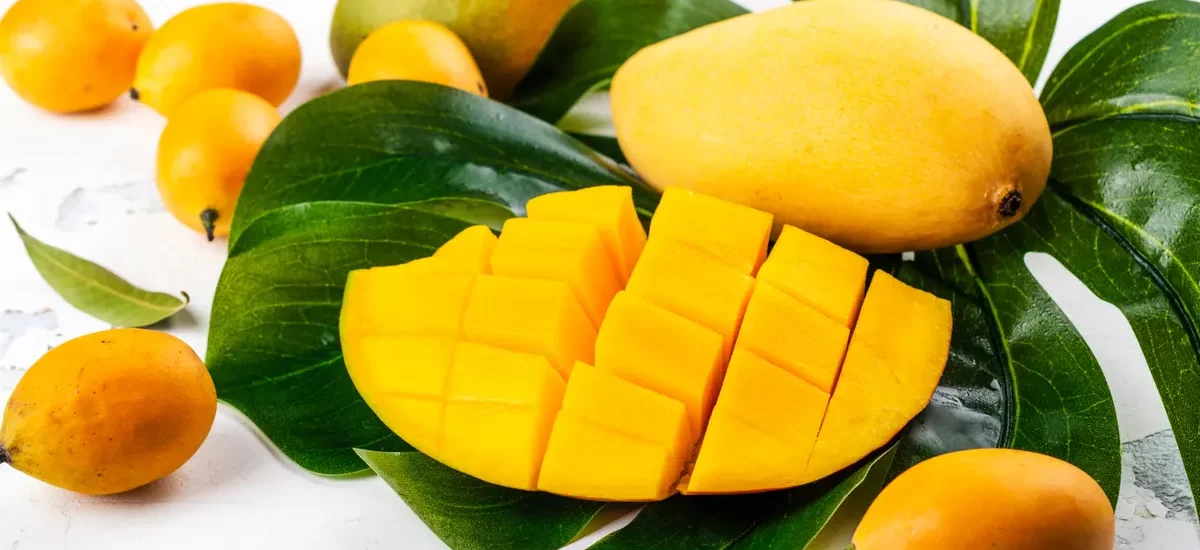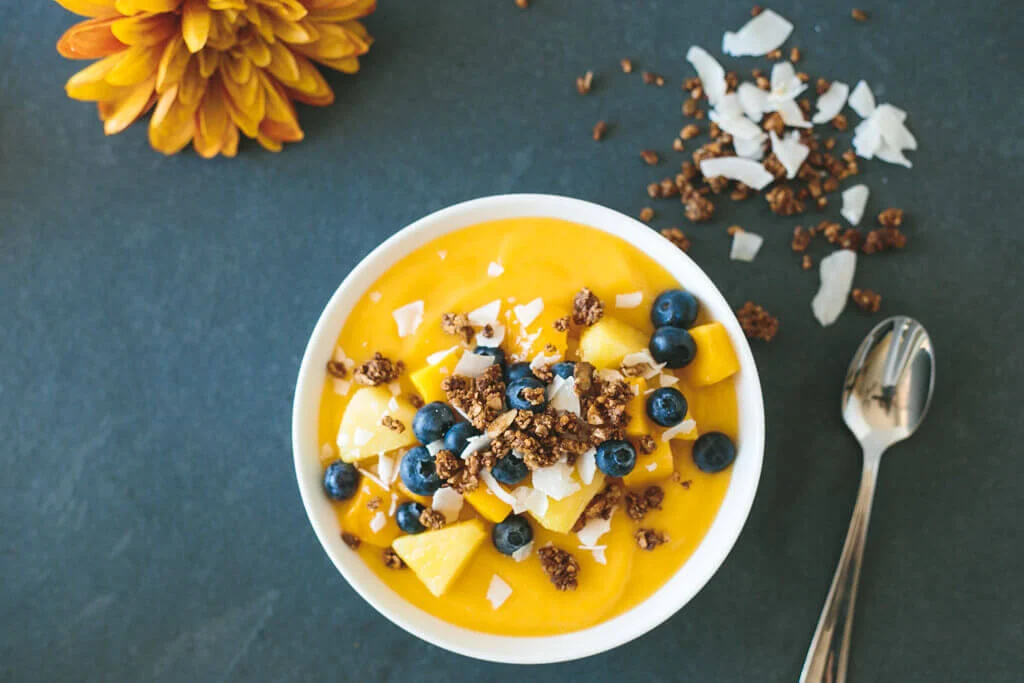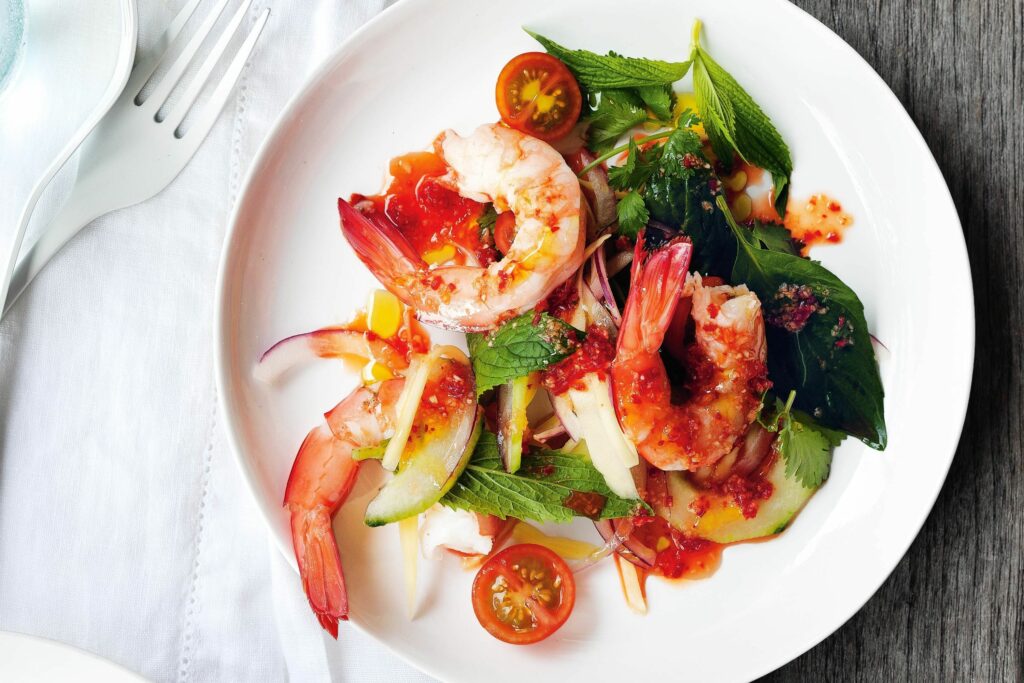

wordpress-seo domain was triggered too early. This is usually an indicator for some code in the plugin or theme running too early. Translations should be loaded at the init action or later. Please see Debugging in WordPress for more information. (This message was added in version 6.7.0.) in /home/sehatnagar.com/public_html/wp-includes/functions.php on line 6114
Mango is a tropical fruit known for its delicious taste and vibrant color. As people strive to shed excess weight, there is curiosity about whether mango can be beneficial for weight loss. When it comes to weight loss, finding delicious and nutritious foods that can support your goals is essential. Mango, a tropical fruit known for its sweet taste and vibrant color, has gained attention as a potential aid for weight loss. This article explores the question, “Is mango good for weight loss?” by examining its nutritional profile, potential benefits, and considerations for incorporating mango into a weight loss plan.
Mango (Mangifera indica) is a tropical fruit known for its sweet and tangy flavor. It belongs to the Anacardiaceae family and is native to South Asia. Mangoes are now cultivated in various tropical and subtropical regions worldwide, making them widely available.
Mango can be characterized by its oval or oblong shape and varying colors, including shades of green, yellow, orange, and red, depending on the variety. Mangoes have a juicy flesh surrounding a large flat seed or stone in the center. Mangoes are not only delicious but also offer several health benefits. They are rich in vitamins, particularly vitamin C and vitamin A, which contribute to immune function, skin health, and vision. Additionally, mangoes provide dietary fiber, which aids digestion and supports gut health.
Mango is also a good source of antioxidants, such as beta-carotene and various phenolic compounds. These antioxidants help protect the body against oxidative stress, which can contribute to chronic diseases like heart disease and certain types of cancer. In terms of culinary use, mangoes are incredibly versatile. They can be enjoyed fresh on their own or used in a variety of dishes, both sweet and savory. Mangoes are commonly used in smoothies, salads, salsas, desserts, and even savory dishes like curries and chutneys.
Mangoes are packed with essential vitamins and minerals, making them a nutritious addition to any diet. A medium-sized mango contains approximately 150 calories, making it a relatively low-calorie fruit option. It is also a rich source of dietary fiber, vitamin C, vitamin A, and antioxidants. The fiber in mango can promote satiety, helping you feel fuller for longer and potentially reducing overeating.
Here is a concise nutritional profile of mango:
As per the USDA, one hundred grams of mangoes contain the following nutrients:
Mangoes can be a beneficial addition to a weight loss diet. They are low in calories and high in fiber, which can help promote feelings of fullness and support healthy digestion. Additionally, mangoes provide essential nutrients and antioxidants. However, it’s important to consume them in moderation due to their natural sugar content. Including mangoes as part of a well-balanced diet, along with regular exercise, can contribute to a healthy weight loss journey.
Best Time to Include Mangoes in Your Diet for Weight Loss
Eating mangoes on an empty stomach or as part of your breakfast will help your body get the most nutrients from this delicious fruit. Hence, eating mangoes at these times is the best. The high water content of mangoes and their fibre content can help you feel full until your next meal. So, you can also eat them as a mid-morning snack.
Mangoes are naturally sweet. Hence, they curb your cravings for desserts. In addition, as an excellent source of carbs, mangoes are a great post-workout snack. However, it is vital to ensure that you eat them in moderation.
Mango flesh and peel contain phytochemicals called polyphenols. Polyphenols can decrease adipogenesis i.e. lower the amount of fat created in the body, which causes fat cells to shrink. In addition, research shows polyphenols increase fat burning, which leads to weight loss.
Mangoes provide dietary fibre and contain about 83% water, which helps you feel fuller for longer and reduce appetite. As a result, mango consumption can reduce cravings and prevent overeating. Hence, it will help one stay within the daily calorie intake target.
Mangoes are a low-calorie fruit, with just 60 kcal in 100g of mangoes. Hence, substituting a serving of mangoes for your dessert or unhealthy snack can help you consume fewer calories.
Experts suggest limiting your mango intake to one cup per day. It will ensure you stay within your daily caloric requirements.
Eating mangoes on an empty stomach or as part of your breakfast will help your body get the most nutrients from this delicious fruit. Hence, eating mangoes at these times is the best. The high water content of mangoes and their fibre content can help you feel full until your next meal. So, you can also eat them as a mid-morning snack.
Mangoes are naturally sweet. Hence, they curb your cravings for desserts. In addition, as an excellent source of carbs, mangoes are a great post-workout snack. However, it is vital to ensure that you eat them in moderation.
You should avoid consuming mango shakes, juices, or packaged chutneys as these products may contain added sugars and can be high in calories. Instead, you should eat mangoes as whole fruit.
Besides the points mentioned above, it is vital to consider some healthy tips to help you enjoy your mangoes without worrying about hampering your weight loss journey.
Here are some tips for consuming mangoes while maintaining a healthy weight:
While mangoes can be a healthy addition to a weight loss diet, overconsumption can have a few potential risks:
Servings: 1
Total time: 10 mins

Method:
Servings: 1
Total time: 20 mins

Method:
Servings: 1
Total time: 10 mins

Is Jaggery Good For Weight Loss?
Can You Drink Milk During Intermittent Fasting?
Is Pomegranate Good For Weight Loss?
While mangoes can be a tasty and nutritious addition to a weight loss diet, it is important to consume them in moderation and consider overall calorie intake. Their fiber content, essential nutrients, and natural sweetness make them a beneficial choice for those looking to lose weight. Remember that sustainable weight loss is achieved through a well-rounded diet, regular physical activity, and personalized strategies that suit individual needs.
A. Although there are contradictory thoughts among experts regarding mango and weight loss, scientific evidence shows that mango may aid weight loss. However, it is only valid if one eats them in moderation and in the right way. Mangoes contain polyphenols, which enhance fat burning, leading to weight loss. Mangoes also assist in the breakdown of food, which improves digestion. Furthermore, vitamins A and C in mangoes enhance immunity. Overall, if paired with a weight loss diet plan in the recommended amount, mangoes can significantly help in weight loss.
A. Mangoes contain relatively low amounts of calories. For example, as per USDA data, one hundred grams of mangoes contain 60 calories. In other words,, one whole mango contains approximately 205 calories. However, the exact calorie content in mangoes differs according to their variety and ripening.
A. Eating anything in excess can lead to harmful effects. Similarly, when consumed in excess, mangoes provide excessive sugar content and carbs, possibly leading to weight gain. Therefore, it is vital to eat them in moderation. Moderate eating can help you maintain your weight loss goals.
A. Mangoes are unquestionably healthy to eat when trying to lose weight. However, remember not to overindulge or consume more than one cup of mangoes daily. The fibre content and water in mangoes can keep you full for longer and assist in weight loss. It is also advisable to add mangoes to your weight loss diet only after consulting a certified nutritionist.
A. Mangoes are a powerhouse of nutrients. Despite their high sugar content, mangoes do have nutrients that help enhance weight loss. For example, fibre and high water content in mangoes keep you satiated for a long, leading to fewer calorie intake. Furthermore, mangoes are a great source of vitamins A, C, and K. The low-calorie content in mangoes is also an aid in losing weight. Finally, polyphenols in mangoes help burn fat faster, leading to weight loss. However, it is vital to eat them in moderation to reap maximum benefits.
A. One can include mangoes in a balanced diet. The best practice for preparing a healthy meal plan is to have foods from all groups and consume them in moderation. That makes a balanced diet. You will get the necessary nutrients by including mangoes in your diet and keep moving towards your weight loss objectives.
A. You can include chopped mango cubes in your fruit salad. Having it as a topping to your yoghurt or low-fat curd is an excellent option. Moreover, you can replace other unhealthy desserts with a few mango slices. As mangoes are naturally sweet, they will curb your sugar cravings. However, the best way is to eat them as a whole. That will ensure you do not miss out on mango’s fibre content.
A. Mango juice has fewer calories, and it might seem healthy to consume when on a weight-loss journey. However, one should avoid fruit juices when on a weight-loss diet. The process of blending takes away all the fibre content from the fruit, which may not leave the fruit as beneficial as it was. But, if you want to consume mango juice, ensure you only drink cold-pressed juice without added sugar or preservatives.
A. There are no significant side effects of eating mango for weight loss. However, excessive use could result in weight gain and diarrhoea. Mangoes also have a warming impact on the body. Hence, overeating them can result in pimples and acne.
A. Experts believe you can consume up to 250 grams or one cup of mango daily. However, everybody is different. Hence, it is best to consult a certified nutritionist or a healthcare expert to define the quantity that suits you the best. Moreover, avoid consuming Aamras, shakes and mango desserts. These products will derail your weight loss journey.